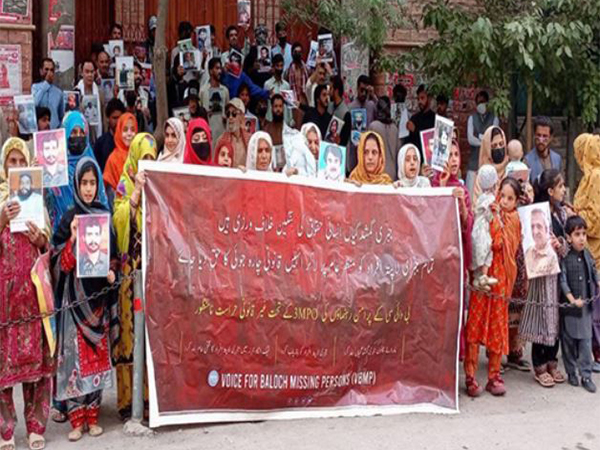Belucistan: new anti-terrorism law, NGOs alarm over enforced disappearances
As the local assembly passes a controversial anti-terrorism law allowing three-month detentions without charge, human rights organisations launch a new appeal against the repression of activists. Of concern are the recent cases of missing students, a phenomenon that is part of a decade of autonomist claims and human rights violations.
Quetta (AsiaNews) - The Provincial Assembly of Belucistan has passed new legislation giving it the power to detain any person for three months without charge. Called the Anti-Terrorism (Balochistan Amendment) Act, the law comes at a time of growing tension over the human rights situation: several international organisations have denounced the systematic repression of activists attempting to defend the rights of the local population, which has worsened since the assault on a passenger train by an armed independence group.
During the discussion of the bill, the issue of missing persons in Belucistan was central throughout the debate. The chief minister of the province, Sarfraz Bugti, argued that the issue of missing persons was used to discredit state institutions and that the legislation was a solution, promising that 'anyone who is arrested will be presented before a magistrate'.
The new law, valid for six years with the possibility of extension, stipulates that anyone suspected of crimes under the Anti-Terrorism Act can be held in pre-trial detention for up to three months for the purpose of investigation. Bugti attempted to reassure the population by claiming that in detention it will be possible to have contact with family and lawyers, and went on to say that 'real missing persons' will be considered those who disappear outside this system.
However, a group of humanitarian organisations strongly condemned the Pakistani government. Amnesty International, together with FORUM-ASIA, Front Line Defenders, the International Federation for Human Rights (FIDH) and the World Organisation Against Torture (OMCT), issued a joint statement in late May strongly condemning the harassment and arbitrary detention of human rights activists in Belucistan.
The statement criticised the continued attacks on the Baloch Yakjehti Committee (BYC), a peaceful movement demanding justice and an end to enforced disappearances. The authorities," the organisations denounced, before the new law was passed, "have consistently instrumentalised public order and anti-terrorism laws to criminalise civic resistance and silence dissent.
Since 20 March, there have been numerous arbitrary detentions, the communiqué continues, pointing out that some activists have been in prison for about two months. It cites, for example, the case of Bebarg Zehri, a disabled person and BYC member, who is still detained. On 21 March, the Balochistan police opened fire on peaceful protesters demanding his release, causing three deaths and at least seven injuries. Mahrang Baloch and Beebow Baloch were also arrested and detained. Beebow Baloch's family reported physical torture during the transfer.
The organisations also highlight the arrest of BYC leader Sammi Deen Baloch, who, despite being initially granted bail, was arrested again. Repression also extends to journalists, with cases such as the arrest of Waheed Murad for reporting a statement by a local politician, and the killing of journalist Abdul Latif Baloch, who was reporting on enforced disappearances. Frequent internet interruptions in Belucistan and digital censorship are other tactics to silence dissent, the organisations claim.
In the past few days, Amnesty International has again highlighted the continuing enforced disappearances. Mahjabeen Baloch, a student at the University of Belucistan, disappeared on 29 May a few days after the enforced disappearance of her brother, Younas Baloch. It also mentions Javid Musafir Baloch, a law student at the University of Karachi, who disappeared on 23 April following a raid by the police and the anti-terrorism department on his residence, and another student, Guhram Ishaq, who was taken the next day outside the hospital in Quetta. The whereabouts of these students remain unknown, reports Amnesty International.
The province of Belucistan, the largest in Pakistan by area and the poorest despite its rich natural resources, has been the scene of a complex socio-political conflict for decades. At the heart of the issue are autonomist claims, often resulting in independence movements. The best known is the Balochistan Liberation Army (BLA), an armed group designated as a terrorist organisation by Pakistan, the United States and other countries. Alongside these armed struggles, however, there are also many peaceful movements, such as the Baloch Yakjehti Committee and the Voice for Baloch Missing Persons, which through demonstrations, sit-ins and awareness-raising campaigns denounce human rights violations, in particular enforced disappearances, extrajudicial killings and state repression







.png)










